Tea - I love the smell of coffee, but can’t stand the taste. I process bitter flavors more strongly than most. I also don’t like IPAs. Dragon from Pern - Flight, fire breath, AND time travel? Yes, please. "Boromir - After a solid first scene, Aragorn became a generic character with very little depth. Describe a successful day of writing. Where are you? What time of day is it? And how do you measure a solid day’s work? The most successful days, I get at least two hours in before my 6 year old wakes up. I still consider myself to have been successful if I can squeeze in 45 minutes of writing while he’s playing Smash Brothers or watching Pokemon. I have daily goals, to which I hold myself accountable by posting something online almost every day. If my post goes up each day, I was successful in my writing. You are a writer, teacher, runologist, and host of the website Futhark Village. What does your work entail and what drew you into your study of the runes? I was 12 when I first found the runes of the Younger Futhark. The writing system of the Vikings was the coolest thing I had ever seen, and I proceeded to write the next half dozen papers I was assigned in school in runes. My teachers, however, did not appreciate having to translate, even though I gave each of them a key. I got a bunch of Fs on papers, and even detentions. Everything I do through Futhark Village is trying to teach people about the runes. There is a mindset that using runes in magick creates, and I find it easier to talk to witches and heathens who are able to use that structure to their thoughts. Really, I’m just trying to reshape the world in my own image. "The writing system of the Vikings was the coolest thing I had ever seen, and I proceeded to write the next half dozen papers I was assigned in school in runes. My teachers, however, did not appreciate having to translate, even though I gave each of them a key." Also, you left out sword-fighting instructor. I teach medieval martial arts (sometimes called HEMA or WMA) to children. When I am writing combat scenes, I get to think back on battles that I have fought at various events and describe that feeling, that motion. I don’t get to use any of the fancy words like Zornhau or Schrankhut, because my readers won’t know them, but I can describe how they work in the same way that I teach a child how to do them. Fantasy authors love to use runes but I doubt that most have much of an understanding of what they mean. In my limited experience, I believe there are several versions of the runes with different origins, characters, and purposes. What is the history of the runes and why are they still relevant today? Among the Long Branch family of Younger Futharks, I’m aware of at least a dozen, and then there are the Short-Twig and Staveless families. The Anglo-Saxon runesets add extra runes, including the Frisian and sometimes the Northumbrian mini-Aetts. "There are three major groups of runes: the Elder Futhark, the Younger Futhark, and the Anglo-Saxon Runes." I think the word “still” is inaccurate when you ask why they are “still” relevant today. The Runes are relevant “again,” rather than “still,” because modern practitioners of magick have revived their use. We don’t know if they were ever historically used in magick as we currently do, and we can be fairly certain that we are doing at least most of it differently than the ancestors ever did. "I think the word 'still' is inaccurate when you ask why they are 'still' relevant today. For me, the Runes are a system which allows me to structure my intention. If I can phrase what I want through the esoteric meanings of the runes, then I can create a spell that will be more effective. I use it the same way that some witches I know make all of their spells rhyme. Many writers and readers online are fascinated by folklore and participate in social media events such as #FolkloreThursday. However, many may be unaware of some of the more nuanced conversations happening within the folklore community right now. As someone who actively practices your beliefs, can you give us a brief explanation of the origins and implications of Declaration 127? In order to answer this question, I want to back up and talk about the Skinhead Punk movement. The Skinheads were a very inclusive group, inviting everyone who was dissatisfied with the status quo to come, enjoy the music, and share a beer while talking about changing the world. But that’s not how most people think of them today. The phrase “Skinhead” is almost always associated with “Neo-Nazi” now.
Declaration 127 says that Nazis are not welcome in Heathenry. We are experiencing the same thing that the skinheads did in the 70s and 80s, where they are trying to invade our faith and corrupt it to their own evil ends. I will welcome anyone into my faith, except Nazis. I have seen the damage they have done to other movements, and I will not have it happen to mine. "Declaration 127 says that Nazis are not welcome in Heathenry." For a long time I’ve enjoyed snippets of your serialized microfiction series on Twitter. What inspired you to start writing micro-fiction and what advice do you have for a new writer who would like to explore that field? So I shifted to the idea of writing a novel. To keep myself accountable, I post 400-600 words of the story on Twitter each day. It isn’t a lot by comparison to the 1700 words per day you need to do for a typical NaNoWriMo, but I’m not trying to write a novel in one month. I’ve been writing my current iteration of Futhark Village since November, and I am about 60,000 words in. I expect to finish somewhere around 75,000 words. As for advice: I have two things. 1.) Find a system that keeps you accountable. And 2.) When you get writer’s block, pull out a divination system, like Runes or Tarot, and ask them what is happening in this scene that you are stuck on. "I shifted to the idea of writing a novel. To keep myself accountable, I post 400-600 words of the story on Twitter each day. I’ve been writing my current iteration of Futhark Village since November, and I am about 60,000 words in." Can you give us any hints or clues about your upcoming projects? Any sneak peeks or snippets? Futhark Village gets posted to Twitter three days per week, so you can see that just by looking at @futharkvillage. I am reopening my sword school, now that my state is in a safe enough condition to do so. We will all be wearing cloth masks under our fencing masks and wiping all the equipment down both before and after, but the parents and I agree that it is safe to restart. I have also started a dual blog called “Tarot for Rune Lovers” and “Runes for Tarot Lovers” which is coming out twice per week on Tuesdays and Thursdays. "Futhark Village gets posted to Twitter three days per week, so you can see that just by looking at @futharkvillage." I am trying to figure out how to get my coven (Wicca) and my kindred (Heathenry) back together safely. Cakes and Ale (Wicca) and Sumbel (Heathenry) don’t work with a mask on, and the social connection is so much more strained when we can’t hug each other or share a meal. Unfortunately, I don’t really have the energy for more projects right now because my day job, as a math teacher, is back in session for in-person classes. This wouldn’t be so bad if we were allowed to have more than 25% of the students in the building at once, meaning that I still need to teach 75% of my students online while also teaching some of them in person. My 60 hour workweeks in the spring just got even longer. "Cakes and Ale (Wicca) and Sumbel (Heathenry) don’t work with a mask on, and the social connection Where can readers keep track of your latest writing and stay up to date on your future publications? I am most active on Twitter. Writing Twitter and Magickal Twitter and Heathen Twitter are fun happy places, and a liberal use of the mute functions keeps Politics Twitter away from me for the most part. (I am politically active in my own town and region, but the internet is not a place for political activism. It just makes people angry, which I find unhelpful.)
0 Comments
"My favorite magical creature is Al mi’raj from Arabic poetry. It is also known as the Wolpertinger in German mythology, the Jackalope in American myth and the Lepus Cornutus from medieval and early Renaissance times." I like stories when seemingly weak or underdog characters win in unexpected ways. I’m not particularly religious, but even as a kid I liked the David and Goliath story. Speaking of Goliath- the mythology there is of the Nephilim- the giants who were apparently offspring of demons and humans. That’s interesting. It was when I was a little kid and to me, it probably always will be. I’m a lover of myths that attempt to explain life to believers. There’s a creature from the Ewe tribe of Togo and Ghana called the Adze. The Adze are shape shifting vampires and evolved as a way to warn against the deadly effects of mosquitos and malaria in the region. "If I had to be best friends with a villian, I would choose the Fratelli family from Goonies." If I had to be best friends with a villian, I would choose the Fratelli family from Goonies. They were such a bumbling group of silly meanies. I write Middle Grade and Picture Books, so it follows that I would like this group of greedy criminals from a smash hit kids movie. I especially loved Sloth Fratelli but he was a good guy, wasn’t he? I drink an unnatural amount of coffee while I write. I recently upgraded to a Keurig after a decade of using the same drip coffee maker. Now, I can have a hot cup - fresh every time I need a bathroom break. It’s kinda funny- I was gifted a box of mixed flavor coffee from my wonderful husband and now I rotate through cinnamon, vermont maple, hazelnut, southern pecan and blueberry vanilla and I love it. "I drink an unnatural amount of coffee while I write." I often offer to read rough manuscripts for fantasy fiction and one piece of feedback I often give (and sometimes get!) is that the narrative doesn’t feel ‘real’. How do you manage to connect with your characters and express their thoughts and emotions to readers in an authentic way? Well, thank you for this question because it implies that I know how to make a character come to life and feel ‘real,’ jumping off the page. I am not sure I always do this. There are times that I’ve reread my work and felt the feelings that the characters are reported to be feeling. I’ve cultivated those moments by writing about something that I have a personal, visceral connection to. Feelings are triggered by sensory experiences and if you can tap into the sensory experiences of your reader and make them feel the feelings that the characters are feeling from the lens of their own visceral life experiences...it becomes real for them. They feel like they “know,” the character. Using the five senses can get you where you need to be quickly. Also using observations about human nature and human behavior can create a connection and give insights into how a character might be feeling. The reader might find themselves thinking “I do that too.” Many authors branch out from writing to provide other services related to the process of making books as editors, graphic designers, and online forum hosts; I call these ‘writing adjacent’ skills. In addition to your writing, you also design incredible author logos to help writers present their brand effectively. What advice do you have for writers who are thinking of exploring the option of offering services using their ‘writing adjacent’ skills? I think that writing adjacent services help you to build an author platform. If you are launching a writing career out of obscurity - offering a service can help others get to know who you are and where you sit within the writing community. You can cultivate friendships, readership and writing adjacent customers in this way. When it comes time to enter into the querying trenches, having a following of some kind is important. How important? The blog subscribers, twitter followers or insta numbers as a platform are a mystery to most of us, but a general, strong effort to get your name out there is valuable and it shows. It shows you have staying power and that you are willing to work for your place in the industry.
There is an origin story for the bunny in The First Easter Rabbit narrated by Burl Ives from 1976 but I wanted to give my story a classic feel and tie it to another famous rabbit story. I find retellings satisfying because the reader gets to re enter a world they’ve loved before and learn a little bit more about the beloved characters. They get to relive the joy. My version of The Velveteen Rabbit, The Girl Behind the Magic sticks to Margery Williams’ original and has enough of her story for modern children to receive the wisdom that Williams intended about ‘realness,’ coming from the pure source of love. However adding a few more layers of contrast helps this story come to life in a fresh new way. Also there is a little girl in this story and I think adding little girls to stories that once had boys as the only protagonist is a fresh take too. "However adding a few more layers of contrast helps this story come to life in a fresh new way. Also there is a little girl in this story and I think adding little girls to stories that once had boys as the only protagonist is a fresh take too. " You are also a writer of short stories and in your lyrical piece The Hope Goblin, a young girl named Isabelle learns to confront a wicked, bullying goblin. The themes of building one’s own self-confidence and self-image are apparent throughout the rollicking tale. On that topic, how do you feel about instructive literature vs. escape fiction? Where is the line for you as a writer between stories that teach and stories that entertain? I love escapism as a reader. As a writer, I must be true to my roots, and instructive literature comes out in me in earnest. I was an English teacher overseas in the Peace Corps, Uzbekistan and then also independently in China. I taught 8th grade writing in Texas as well as ESL to adults and kids. If teaching is breaking something down to its simplest components to be able to build- students in tow, a thing to its theoretical completion- this is how I approach most things in life. I am a parent and I utilize those skills. I love to cook and paint abstract pieces and I do graphic design. I use the skill of looking at the building blocks and ingredients to get to a desired result in those areas too. I think this is why I like writing for kids. Simplifying may seem just that...simple...but it’s a lifetime thus far of developing the skill of breaking things down in order to teach it... I think I bring this skill to the table as a writer too. "Simplifying may seem just that...simple...but it’s a lifetime thus far of developing the You have an impressive compendium of mythological creatures on your website, including the little known fairy pig from the Isle of Man known as the Arkan Sonney. What draws you to these creatures and in what ways have other writers responded to your work on that collection?
"We all have similar fears and insecurities too and you find them personified in many of the creatures of myth." Authors from other countries have contacted me and asked when I am going to do an article on a creature from their culture. I am slowly working through an alphabetical list and so many have said they will be patient until I get to theirs! Others have reached out and thanked me for expanding past what they can find on Wikipedia. I try to cross reference and give examples from several sites so that I am not just replicating what is already easily accessible on the internet. What also seems to be helpful is talking about where the mythological creature has shown up in American pop culture. I find that advertising and product naming ventures pull from International myth and folklore a lot. "I try to cross reference and give examples from several sites so that I am What can you tell us about your most recent project? Do you have a few smaller stories on the go or are you working on something big? I am currently seeking representation for a #STEM, PB series and am very excited about the process. I have a MG Contemporary Adventure based on Aztec Mythology that I am trying to find a home for as well and am also continually working on short stories and creature articles for my blog. Last, but not least, where can readers find more of your work and stay up to date on your latest publications? Find A.R. Jung's adaption of Margery Williams’ The Velveteen Rabbit on Amazon: The Girl Behind the Magic.
In the past few years you have published several books, been an active contributor in academic circles, and engaged a large audience through social media. Do you set a strict schedule to maintain this level of productivity or do you find other ways to sustain your work? I have a bullet journal. It is not very decorative, but it is great for making checklists, and I like checking things off (yeah, I’m an overachiever). I read a certain amount of stories each day with my breakfast, and most of my blogging and social media posts are scheduled for specific days. It also helps that I do a lot of the storytelling research purely for fun. Sometimes I just feel like looking up folktales about a topic, or from a place, and I enjoy going down the research rabbit hole. It’s one of the things I do for fun. "I have a bullet journal. It is not very decorative, but it is great for making checklists, and I like checking things off..." Your work on folktales from around the world spans both continents and centuries. Is this work driven primarily by personal passion or do you hope that your translations become contributions to the ever evolving conversation on globalization? It is mostly personal passion. I love learning about cultures through their stories. I started the “Following folktales around the world” reading challenge a few years ago, and I still have about 40 countries left to read folktale collections from! As for contributions: With my books I hope to bring Hungarian folktales to English-speaking audiences and storytellers, because they are not very well represented on the English language folktale market. On the flip side, I translate a lot of tales into Hungarian so that Hungarian audiences can have access to them as well. "With my books I hope to bring Hungarian folktales to English-speaking audiences and storytellers, One of your first books was Tales of Superhuman Powers: 55 Traditional Stories from Around the World. Today more than ever, North Americans are flocking to the theater to watch movies about superheroes and traditional story-telling media, such as comic books and graphic novels, are becoming popular again. Given your work in this field, what do you think draws people to stories about superheroes? Is it human nature? Is it a part of our mythos or culture? Is there perhaps something psychological at work?
"My personal favorite thing about these “superhero” tales is teamwork. Earlier this year you released a book titled Forum-Based Role Playing Games as Digital Storytelling in which you describe an emergent form of digital storytelling facilitated through online platforms. Through this experience you discovered “a subculture of unbound creativity” as people wrote novel length descriptions of fictional characters and experience that they lived through these digital worlds. As a professional story-teller yourself, what drew you to engage with and study these emerging communities?
And the stories that come out of it stay online, and you can go back and read them for fun, or out of nostalgia. There are sites where I have been active for 8-10 years, and the stories still keep surprising and entertaining me. I love creating them in cooperation with others, rather than just writing things alone. In your 2018 publication Dancing on Blades: Rare and Exquisite Folktales from the Carpathian Mountains, you translate the tales of Anna Pályuk, a Rusyn woman who married into a Hungarian family. I find myself challenged by the task of ‘crossing cultures’ as I work with Icelandic source material from a different culture and time. How did you preserve the essence of Anna Pályuk’s stories while translating them for a modern reader? Were there any guidelines or strategies that helped to guide your process?
Joseph Campbell believed that common connections existed between stories from many parts of the world and summarized some of the key aspects of those similarities in what he called the Heroic Journey. Do folktales from around the world share much in your experience or have you found them to be highly distinctive to the culture they were first told in? I have a bone to pick with the Hero’s Journey. For one, it only fits a sub-category of folktales, usually known as wonder tales or fairy tales. The more one digs into different kinds of traditional stories, the less the theory holds up. Plus, as a storyteller, I tend to focus on how the story is embellished, rather than the basic plot. A lot of tales can be boiled down to “someone gets into trouble, then gets out of it”, but let’s be honest, that is not what makes one tale more compelling than another. There are tale types that exist all around the world, but I only ever really liked one or two variant of them and the rest just didn’t click, because of small details. "The more one digs into different kinds of traditional stories, the less the theory holds up. Where can readers find more of your work and stay up to date on your latest publications? I regularly blog through my website and I have a professional Facebook page. You can also follow me on Twitter.
What does a productive day of writing look like for you? Do you have any habits or rituals that help you stay focussed or be more productive? I’m currently working on ritualizing 1,000 words a day minimum. I’ve been all over the place, ranging from zero to 8,000 in a single day. A good day is when I’m in a state of flow, when the words seem to come of their own accord. That only comes if I’ve been regularly writing for a few weeks. Habits right now are hard to form, because I have three toddlers. But I do have a special writing station, I have noise cancelling headphones and my favorite 16th century choral music station on Pandora, and sometimes, that works. "I do have a special writing station, I have noise cancelling headphones What is the greatest obstacle between you and your writing? Myself. Having a self-defeating mindset that feeds on internal negativity. Sometimes I can’t write. Then I hate myself. But recently I’ve gotten pretty good at just forcing myself to work through it. Still have some bad days, though. Your work is inspired by the Russian Folktales; I can relate as my work is based off the Norse Myths. Where does the writing process start for you: with an original idea or with the folktale? Good question! The folktale is the frame for me, the backbone. I don’t study it or read it; it’s inside me already, I grew up with them. So within that world that I know, I then start to think about original ideas inspired by the tropes of the fairy tales. If I’m stuck, then I’ll read a folktale I haven’t read before, and often I’ll get weird tangential ideas for mythical creatures or obstacles or conflict that way. It’s fun. "The folktale is the frame for me, the backbone. I don’t study it or read it; it’s inside me already, I grew up with them."
But there’s something about them that engages very intrinsic parts of human beings, no matter what the culture. Tolkien talks about this, modern neurobiology confirms it with interesting studies on brain scans. Basically, there’s something about fairy tales that can tell a deep truth in a way that goes straight to the heart, sometimes even bypassing the brain. It’s some like incantation or music, which is more experiential than rational. "there’s something about fairy tales that can tell a deep truth in a way that goes straight to the heart, What is next for you creatively? Do you have another project on the go? I’m taking a very long time editing book 4 of my series, which is a novella, but has taken longer than almost any other book I’ve written. It’s got a lot of emotional stuff in it, which I need to get right. And I’ve been battling… what do they call it? crippling self-doubt? Something like that. I’m also working on a screenplay with another writer, a historical fantasy set in the early days of medieval Russia, when the Russians were basically Vikings. It’s been fun. Where can we find more about you and your work? I blog about Russian folk history and culture, and I write book reviews on my website, where you can find all my books as well. You can also find me on Facebook, Instagram and Pinterest, where I share images that inspire my writing. Read more from Nicholas and find his Raven Son series on his website.
|
AuthorJoshua Gillingham is an author, editor, and game designer from Vancouver Island, Canada. Archives
April 2022
Categories
All
|

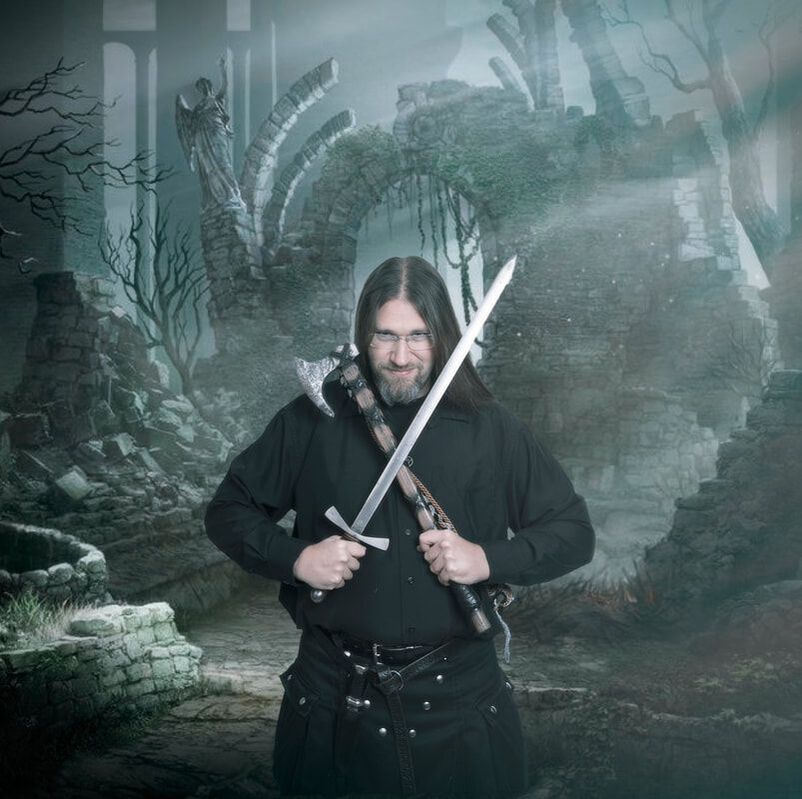
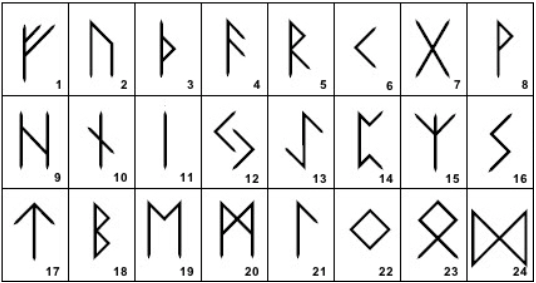

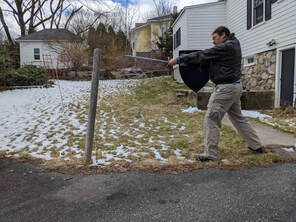

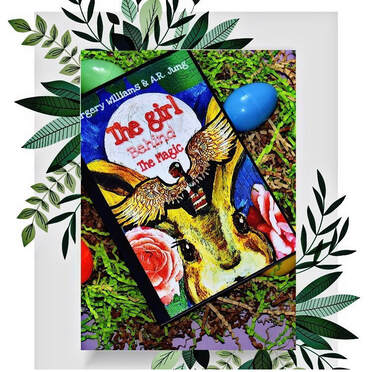
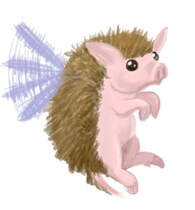
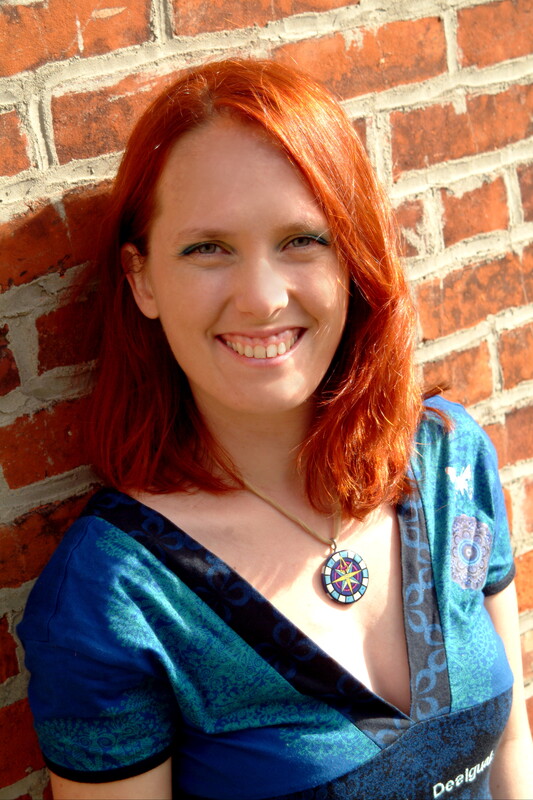
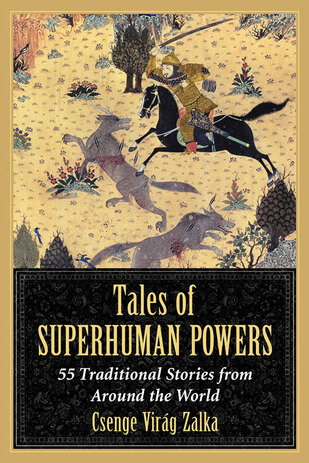
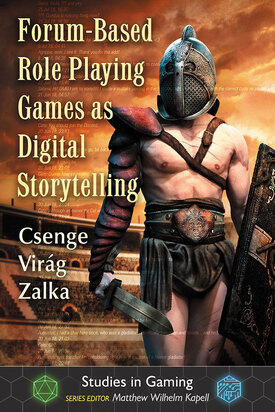
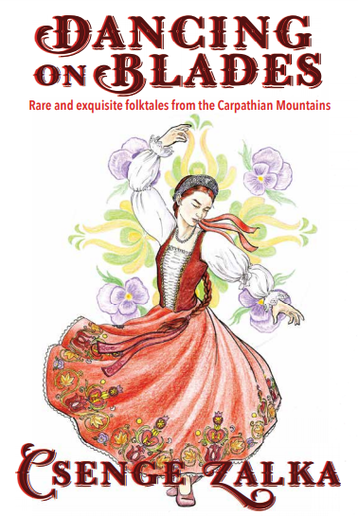
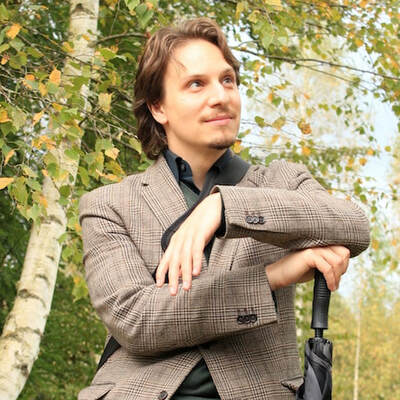
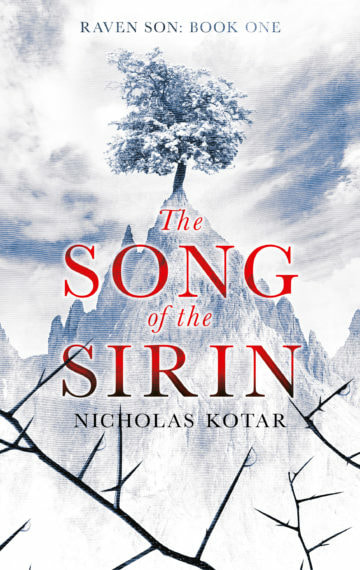
 RSS Feed
RSS Feed
